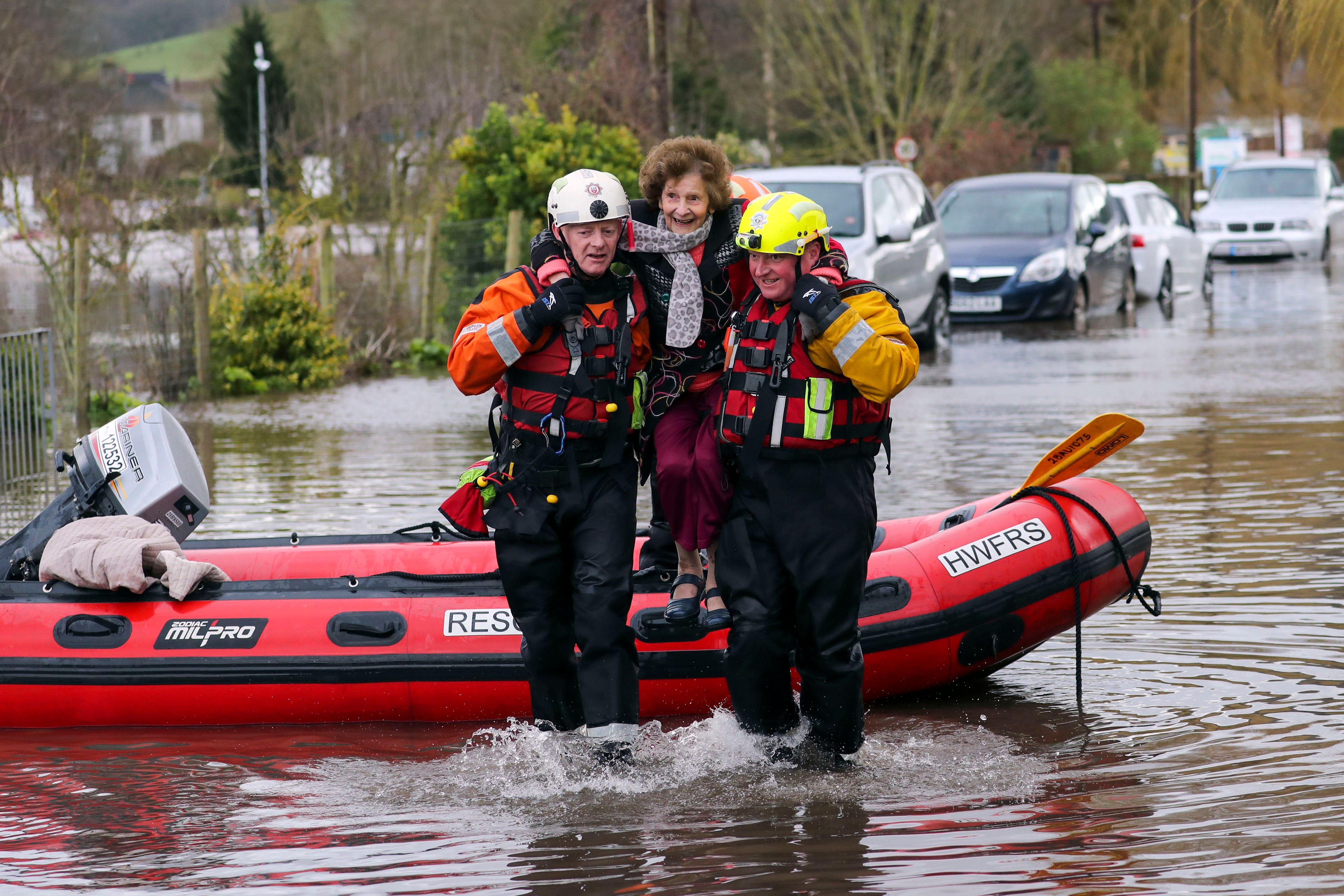Storms to be named after UK weather responders
The list, compiled by UK, Irish and Dutch weather services, also includes public suggestions and famous scientists.

Some of next season’s storms will be named after those working to protect people from severe weather around the UK, the Met Office has said.
Along with Met Eireann in Ireland and KNMI, the Dutch weather service, meteorologists name storms when they are expected to have a “medium” or “high” impact on people in the UK, Ireland or the Netherlands.
This helps communicate the seriousness of a storm to the public and helps people recognise what steps to take, the Met Office said.
The three organisations work together to compile the list of names before the following season, which runs from September to August.
Will Lang, head of situational awareness at the Met Office, said: “This is the ninth year of us naming storms and we do it because it works.
“Naming storms helps to ease communication of severe weather and provides clarity when people could be impacted by the weather.”
The public in all three countries submit suggestions for storm names, with the Met Office saying it wanted to include people working to protect the public.
Met Eireann wanted to include names of famous scientists, such as Jocelyn, named after astrophysicist Dame Jocelyn Bell.
KNMI’s suggestions are submitted by the Dutch public during visits to the forecaster throughout the year.
Ciaran Fearon, who works for the Department of Infrastructure in Northern Ireland sharing information on river levels and coastal flooding, was one of those named by the Met Office.
He said: “With the effects of climate change, we are more aware than ever of how weather can affect us all in every aspect of our daily lives.
“We need to respect each weather event and this work, particularly during periods of severe weather and storms, helps to ensure that we are all as well prepared as possible to help reduce the impact of such events.”
Debi Garft, who recently retired as senior policy officer in the Scottish Government flooding team, is in the list of names after helping to form the Scottish Flood Forum and the Scottish Flood Forecasting Service.
She said: “It is important that we all take steps to protect ourselves, our family and property by preparing for extreme weather events.
“Checking the Sepa (Scottish Environment Protection Agency) flood maps to see if your property or business is at flood risk, signing up for free Sepa Floodline local flood warnings and regional flood alerts, and using the daily Scottish Flood Forecast are great first steps.”
One name on the list, Minnie, was inspired by Minnie the Minx from the Beano comic, after the inclusion of Storm Dennis in 2020.
A special feature on storms is expected to appear in a Beano issue this month.
Regina Simmons, who works for the Natural Resources Wales Warning and Informing team, is on the list after working to predict river and coastal flooding.
She said: “So many people think that flooding won’t happen to them. The first thing we can all do is check if our area is at risk of flooding before the rain starts to fall.”
This is the first year to break with the traditional male/female ordering of names so some of the more popular submitted names can be included, the Met Office said.
Stuart Sampson has worked for nearly 20 years managing water supplies in times of drought for the Environment Agency.
After being included in the list, he said: “Our weather is a great conversation starter. Giving a storm a name means we can all talk about an event with a clear and common understanding.
“Everyone knows what you mean by Hurricane Katrina, for example, you know the magnitude and impacts that had on America. But if you said the low-pressure cyclone it would not resonate as much.
“By naming storms, this will help everyone be better prepared and in the conversation.”
Bookmark popover
Removed from bookmarks